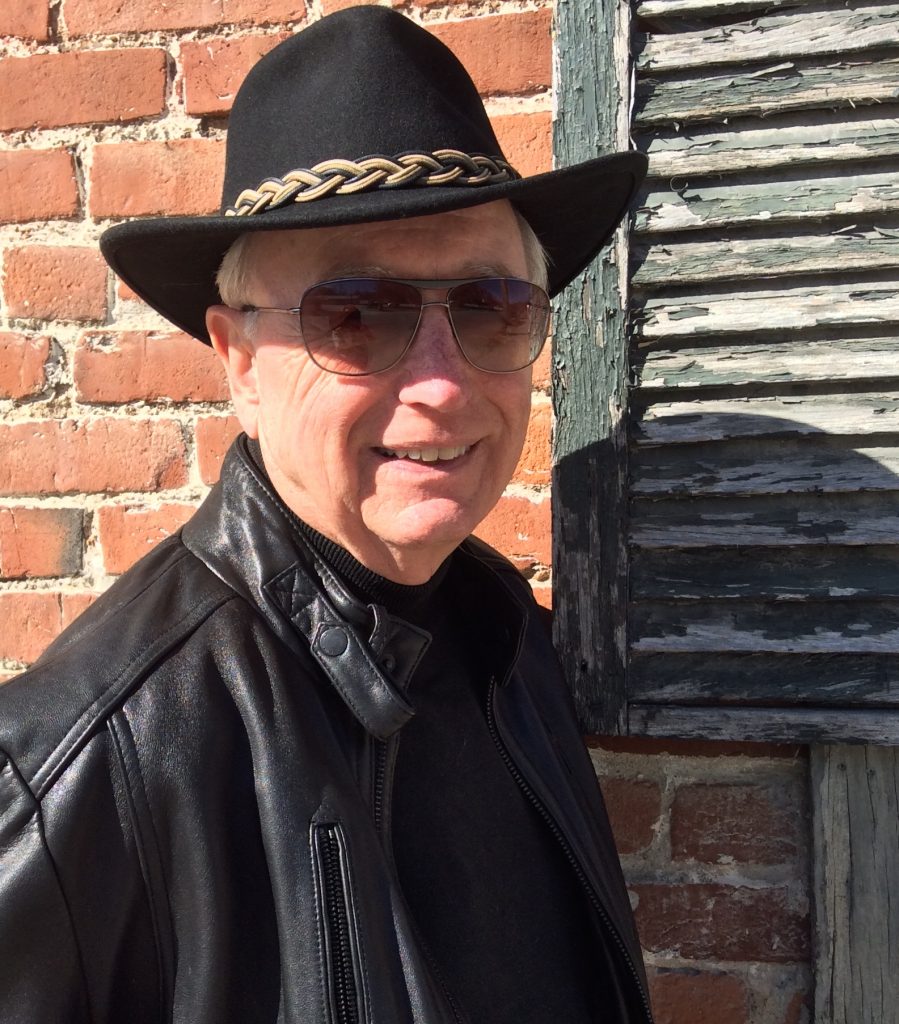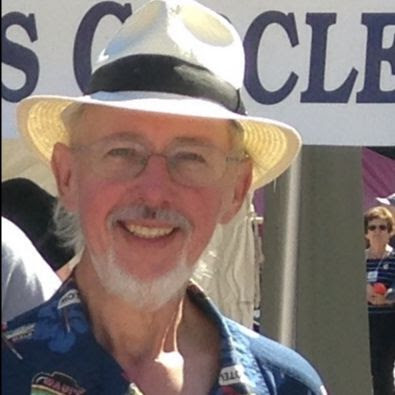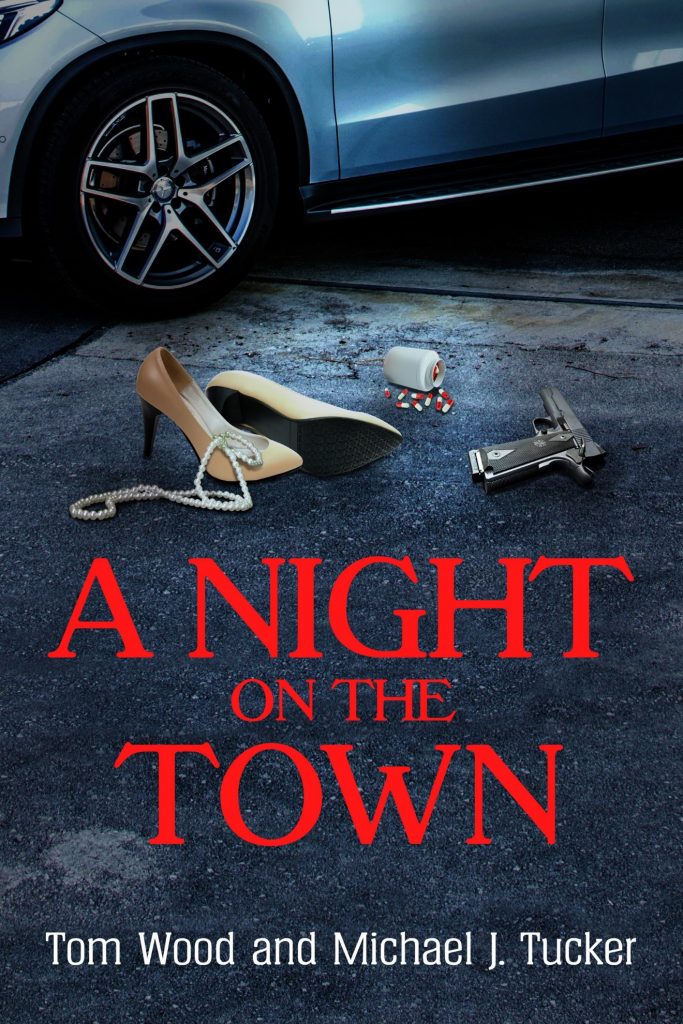THE CO-WRITING EXPERIENCE
An Interview with Co-Writers Michael J. Tucker and Tom Wood
I’ve co-authored non-fiction for most of my career, but never considered co-writing novels or short stories. Having complete control over the work has actually been one of fiction-writing’s chief draws for me–distinguishing it from the science writing, playwriting, and other collaborative writing I do.
But recently authors Michael J. Tucker and Tom Wood had made me re-think co-writing. They have just published a co-written, A Night on the Town. a short story about two strangers whose paths cross on a fateful rideshare encounter.
Both were gracious enough in this interview to enlighten me about the co-writing experience.
TZ: A Night on the Town is written using alternating first-person voices—which strikes me as particularly well suited to co-writing because it gives each author the ability to develop a distinct character or characters (kind of like improvisational theatre). Is that what you did? Or were you both involved in drafting and editing every character?
MT: We did develop our own characters. I wrote the voice of Arnold, but Tom started the process with writing the voice of Deke. He wrote the opening scenes, about 1,500 words. I then took a copy of his manuscript and inserted Arnold into appropriate scene splits. Tom and I have been in the same critique group for nine years, so we are used to giving each other feedback and open to each other’s suggestions for changes.
TW: Mike and I have different writing styles in that Mike’s prose tends to be a little grittier than mine. But I wanted to explore the yin yang of a character who by day is a good guy – that’s Deacon, popular at work and with neighbors, friendly and helpful — but at night his dark side comes out. That’s Deke. And Deke is a dark character, the darkest I have ever written. So it pushed me to flesh out that character and match what I knew Mike would do with Arnold.
TZ: Did you plan the basic storyline and/or the different tone, diction, or world-view of the different characters upfront? Or did you each just write your individual parts of the story and let things evolve naturally?
MT: We agreed on the basic plot, a rideshare passenger was going to rob the driver. From there we developed our own characters and the details followed.
TW: I got the initial idea from a police report about a young gang robbing one rideshare driver, then using that person’s phone to call another rideshare driver and rob that one, and on and on. I think they got caught the same night or next day. I wondered how you could do something to avoid being caught and what if the driver had the same idea — of robbing his passenger. I knew it was a good idea, but my rideshare knowledge is zero while Mike has experience as a rideshare driver. Because of our critique group experience of writing and editing together, it seemed like an easy choice to approach him with the idea. And it worked out probably better than either of us thought.
TZ: The story is framed by the voice of the detective. Was the writing and editing process for that character different than for the two main characters?
MT: Yes, it was different. We both wrote the detective’s scenes. It was really a cooperative process.
TW: The detective wasn’t part of the initial story, which focused on two characters only. But it seemed like a police presence was needed to round out the short story. And we were so pleased with the story that we decided to adapt it to a feature-length screenplay. Detective Mondelli’s role has been expanded as have the stories of Deke and Arnold and other characters we came up with. It’s the same basic story but much richer
TZ: Obviously co-writing made you acutely aware that this particular piece of writing was different than solo writing projects. But I’m curious as to how much you think the co-writing experience impacts the readers’ experience. How important is it for readers to be aware that this is a co-written short story? Do you think that knowledge affects the reading experience? Should it?
MT: Sometimes it is difficult for a reader to distinguish the difference between characters. A writer must be careful to make sure each character has a different voice. Tom and I have different writing styles. It is not important for readers to know there are two different writers, but it helps the reader.
TW: I agree. And in this instance, it did make a difference because I was basically able to focus on my character’s story and Mike concentrated on Arnold.
Tom and I have different writing styles. It is not important for readers to know there are two different writers, but it helps the reader.–Michael J. Tucker
TZ: I read that you and Mike are members of a writers’ group (Harpeth River Writers), which itself has published a co-writing project of sorts: an anthology (Words on Water) of the works of 9 different writers, including a “chain story.” What exactly is a chain story, and how did you manage that?
TW: A chain story is basically one cohesive story written in sections by different authors, with each author picking up the story where the other writer left off. I’ve participated in several writing prompt exercises, and I thought it would be a good way to cap off the anthology. The idea met with initial resistance but everybody warmed up to it, deciding it would be good experience to work on our craft at the very least, and that if it was good enough we would include the story in the anthology. We decided to write a mystery, chose an order in which each of us would write and set only three parameters for the story—1) Each of us would write from the perspective of someone attending their 25th high school reunion; 2) The location for the reunion’s mixer would be along the Harpeth River, since that’s where we got our name; and 3) a body would be found in the water. And go. Start writing,…
I am all for constructive criticism that can make my story better and prevent an error getting into print.–Tom Wood
TZ: What happens when you and Mike disagreed in the editing process (assuming you did). Was there one final editor or arbiter of the story as a whole, or did you let the original writer make a final decision of each respective section?
MT: As mentioned earlier, we have a long history of accepting each other’s feedback. I can’t think of a time during the writing of A Night on the Town where we didn’t arrive at a mutual agreement.
TW: I spent a career in the newspaper business, having my stories edited and rewritten and my doing the same with other writers’ stories. I am all for constructive criticism that can make my story better and prevent an error getting into print. Mike’s the same way and while we had differing views on certain aspects, we were easily able to solve any issues. We also submitted sections to our critique group and got great feedback from them. After Mike and I were satisfied with the story, we took it to a professional writer and editor, Jaden Terrell, who had some great comments and suggestions that we implemented before publishing.
TZ: I’m curious about the market for stand-alone short stories. I would think providing a story like this in electronic form, as you do, would be very appealing these days. Or do you think short story readers are still more likely to turn to traditional anthologies or literary magazines for shorter fiction?
Trust your partner. Ideally, you’ve had prior experience…critiquing each other’s work.–Michael. J. Tucker
MT: Marketing short stories is a real problem. Even anthologies are a challenge. The one advantage of a short story is the price. I currently have thirteen short stories published on Amazon. They sell for ninety-nine cents, and occasionally I offer them free. It provides a low-cost opportunity to exposed readers to my writing and hope they will find an interest in purchasing my novels.
TW: It is an aspect I am still learning, marketing stand-alones. But I am embracing the challenge and hope to find a niche.
TZ: Do you have any more co-writing projects planned or in progress? Or any advice for other writers thinking of co-writing?
MT: My advice to other writers is to trust your partner. Ideally, you’ve had prior experience with them critiquing each other’s work.
TW: Nothing in the works but I would be open to another collaboration with Mike on another story or script. Two heads can be better than one as A Night on the Town shows. I don’t think it would have been nearly as good had just one of us written that story. We had a great experience co-writing the screenplay as well and our Harpeth River Writers anthology is chock-full of stories that would be great on-screen. So who knows?
.
Terra Ziporyn
TERRA ZIPORYN is an award-winning novelist, playwright, and science writer whose numerous popular health and medical publications include The New Harvard Guide to Women’s Health, Nameless Diseases, and Alternative Medicine for Dummies. Her novels include Do Not Go Gentle, The Bliss of Solitude, and Time’s Fool, which in 2008 was awarded first prize for historical fiction by the Maryland Writers Association. Terra has participated in both the Bread Loaf Writers Conference and the Old Chatham Writers Conference and for many years was a member of Theatre Building Chicago’s Writers Workshop (New Tuners). A former associate editor of the Journal of the American Medical Association (JAMA), she has a PhD in the history of science and medicine from the University of Chicago and a BA in both history and biology from Yale University, where she also studied playwriting with Ted Tally. Her latest novel, Permanent Makeup, is available in paperback and as a Kindle Select Book.
- Web |
- More Posts(106)


